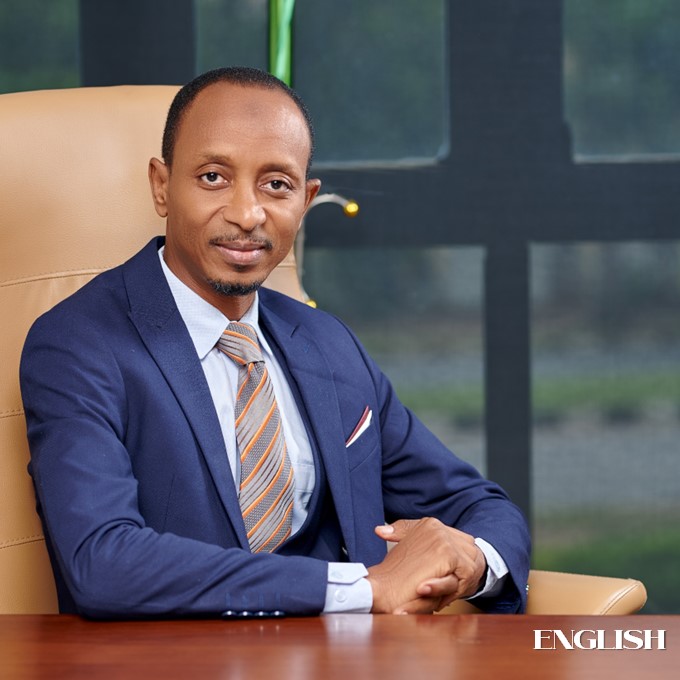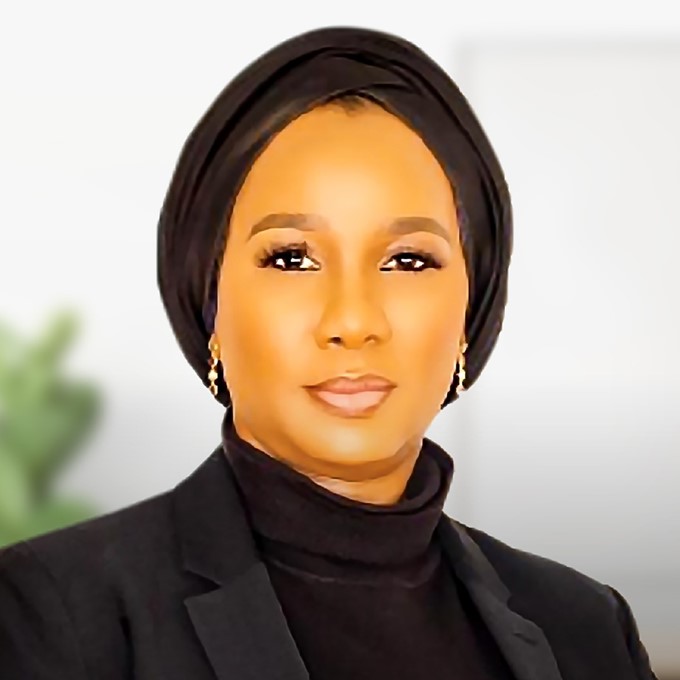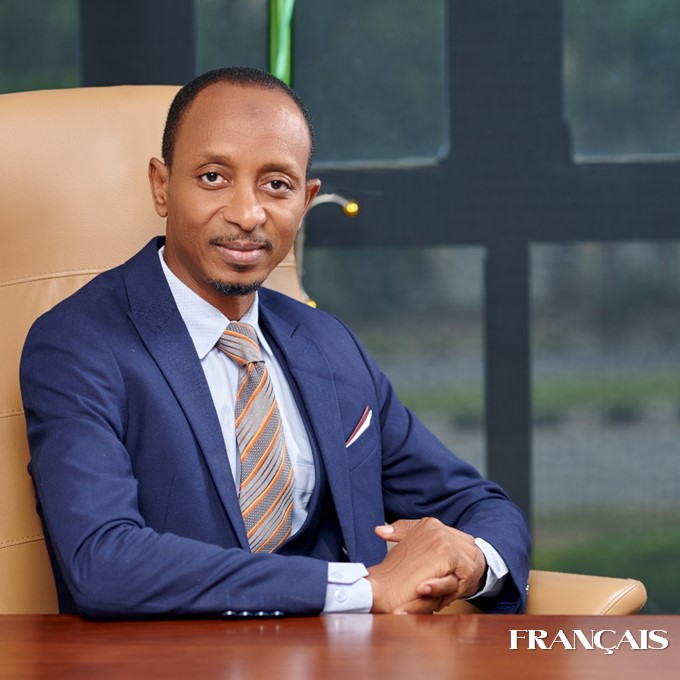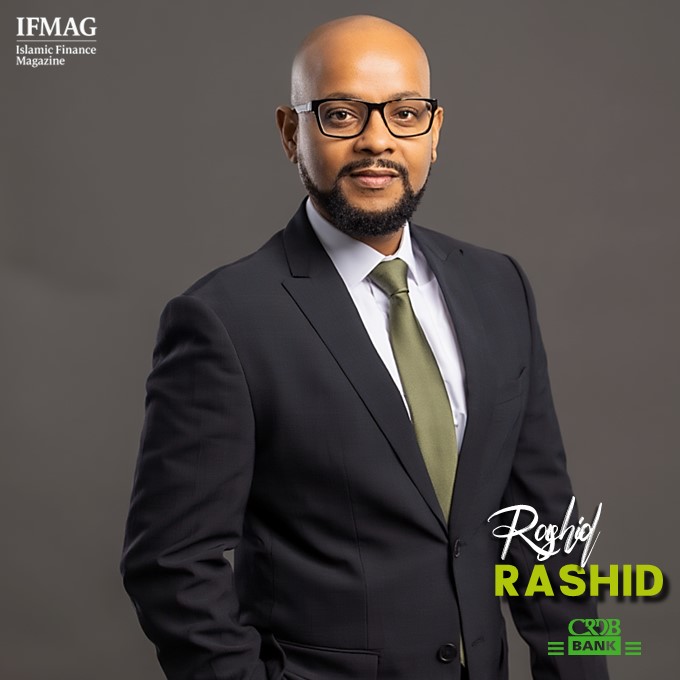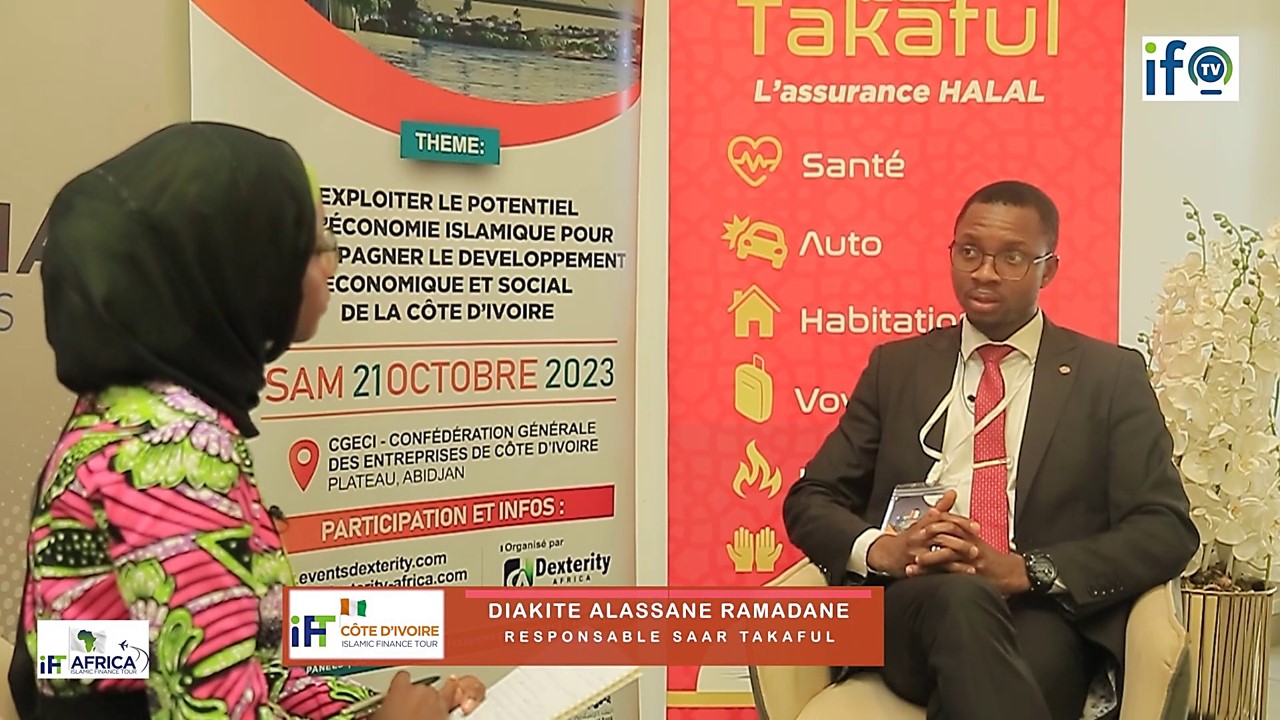About Attahiru MACCIDO
Attahiru MACCIDO the CEO of ONE 17 CAPITAL in Nigeria. He is a Trainer and Consultant on Islamic Banking and Finance, specialising in Islamic Capital Market. He was involved, via Buraq Capital, in advising the FGN/DMO on Sukuk issuances of 2017 and 2018. He was the pioneer CEO of Lotus Financial Services Ltd, a subsidiary of Lotus Capital Limited, and an Islamic finance fund manager. Attahiru was also Head of the Northern Region of Lotus Capital Ltd. While with Lotus Capital, Attahiru left his footprints not only in the Company but to the Islamic Finance Industry in Nigeria.
Attahiru was instrumental in structuring the first Nigerian private Sukuk Al-Istisna issued by Lotus Capital in 2010. He also constructed and managed the first Lotus Islamic Equity Index from 2009 to 2012. The index metamorphosed as “NSE Lotus Capital Islamic Index – NSE LC II” when The Nigerian Stock Exchange partnered with Lotus Capital to manage the index. Attahiru has also structured an Ijara Sukuk for the Osun State Government, the first public Sukuk issued in Nigeria, which received the Africa Deal of the Year Award at the Islamic Finance News (IFN) Awards in 2013 in Dubai. He also worked with the Securities and Exchange Commission (SEC) from 2002 to 2006.
Mr. Maccido was a member of the Technical Committee constituted by the Steering Committee on Alternative Finance made by the Central Bank of Nigeria, SEC, DMO, ICRC, and FMJ. He is also a member of the 10-Year Master Plan on Alternative Products of the SEC. He is a Technical Adviser on Sukuk Listing to FMDQ OTC (Exchange) Plc. Mr Maccido is also a Member of the Global Advisory Board of MIT Global Group, UAE, and Sri Lanka.
Mr. Maccido is a Fellow of the Institute of Chartered Economists of Nigeria (ICEN), a Fellow of the Chartered Institute of Management and Leadership (Delaware, USA), and a Fellow of the Institute of Islamic Finance Professionals of Nigeria (IIFP). He is a Recipient of the Merit Award for "2018 Economists Achievers" by the Institute of Chartered Economists of Nigeria (ICEN).
Can our audience know more about One17 Capital and its role in the Nigerian financial landscape and perhaps beyond?
One17 Capital Limited, as a company, was incorporated in June 2020, just after the COVID-19 lockdown. We applied for a license and successfully obtained it in December 2020. We are a licensed fund management company, commonly known as an asset management company in other jurisdictions.
Having discovered a deficiency in Islamic finance, we decided to focus our activities primarily on Islamic finance. In addition to fund management, we serve as Shari’ah advisors and financial advisors for some landmark products and Sukuk structures in Nigeria.
Due to a shortage of professionals in the field, we have also taken the initiative to provide training and capacity building for individuals and corporate organisations in a bid to raise awareness of Islamic finance. As a result of our training efforts, we have collaborated with institutions such as the International Center for Islamic Culture and Education (ICICE) in Abuja, Nigeria. We also have partnerships with the Islamic Finance Training Institute of Ghana for training in Ghana and the International Institute of Islamic Banking and Finance at Bayero University Kano, which currently issues certificates for Islamic finance training.
Can you share insights into your role as Managing Director at One17 Capital Limited and your contributions to the field of Islamic finance?
Currently serving as the Managing Director and CEO of One17 Capital, my responsibilities involve overseeing all company activities and providing guidance to our professional teams. Recognising the demand for both licensing and non-licensing roles, we have created two additional institutions to comply with regulations and efficiently meet the diverse needs of our clients.
One17 Capital Limited, operating as a fund management company (or asset management company), has extended its services through the establishment of One17 Financial Advisory Services, dedicated to Sukuk issuance and financial advisory, and One17 Ethical Advisory Limited, specifically for Shari’ah advisory activities in alignment with Islamic finance principles.
Regarding my contributions to the field of Islamic finance, I initiated my formal involvement with Lotus Capital in 2008. During my tenure at Lotus Capital, I successfully structured a private Sukuk Al Istisna’a for a private client and the Osun State Government Sukuk in October 2013. Additionally, I played a key role in developing the NGX Lotus Capital Islamic Index, the only Islamic equity index in Nigeria, which is now part of the indices offered by the Nigerian Exchange.
I have also been involved in structuring and overseeing the Federal Government of Nigeria Sukuk, starting from 2017 up to the most recent issuance in 2023. Furthermore, I contributed to the structuring of the Sukuk al-Ijarah for Family Homes Funds Limited and the Sukuk Al-Mudarabah for Taj Bank.
My commitment extends beyond transactions, as I am actively involved in training numerous professionals and raising awareness. These efforts represent my contributions to the journey of Islamic finance in Nigeria.
Reflecting on your journey so far in Islamic finance, why did you choose this path? What are your sources of motivation?
The primary reason for choosing this path stems from my religious values, particularly as a Muslim who understands the implications of interest. It has been ingrained in Islamic teachings to avoid interest unless absolutely necessary. For me, adhering to these Islamic values means steering clear of anything associated with interest.
Avoiding interest naturally leads to the question: What are the alternatives, and why do I want to develop answers for the increasing number of Muslims who, in addition to abstaining from other vices, are looking for possibilities beyond interest?
Islamic teachings, notably the guidance of Prophet Muhammad (SAW), advocate taking action against anything considered evil. The Prophet advised, "If you see anything that is evil among yourselves, try and solve it with your hand. If you cannot, preach against it. If you still cannot, then hate it in your heart" (مَنْ رَأَى مِنْكُمْ مُنْكَرًا فَلْيُغَيِّرْهُ بِيَدِهِ، فَإِنْ لَمْ يَسْتَطِعْ فَبِلِسَانِهِ، فَإِنْ لَمْ يَسْتَطِعْ فَبِقَلْبِهِ).
In line with these principles, I believe it is incumbent upon me to take action and contribute towards finding solutions for the Muslim population seeking alternatives to interest and steering away from related non-interest activities.
As a director of Buraq Capital Limited, you played a key role in advising the Federal Government of Nigeria on the debut of Sukuk. Could you elaborate on the challenges faced and the impact of these initiatives on Islamic finance in Nigeria?
One of the initial challenges we faced was persuading the Federal Government of Nigeria (FGN) to consider issuing Sukuk. Back in 2009, during my tenure at Lotus Capital, Mrs. Hajira Adiola (MD of Lotus Capital) and I visited the Debt Management Office regarding this matter. However, it wasn't until 2017 that the debut Sukuk was issued, which we advised while I was at Buraq Capital. You can now have an idea of the duration and degree of work required from our initial meetings to the witnessing the first FGN Sukuk issuance.
Another challenge emerged from public perception. Due to Islamophobia, some people incorrectly claimed that the Federal Government's Sukuk issuance aimed to Islamize the country. To counter this, we worked tirelessly to create awareness, highlighting that countries like the UK, Luxembourg, Hong Kong, and South Africa had issued sovereign Sukuk in 2014, all of which were successfully subscribed.
After the Federal Government issued its Sukuk in 2017, the Debt Management Office tagged all roads constructed with proceeds of the Sukuk bond, allowing the public to witness the tangible impact of Sukuk investments in quality road construction.
The initiative significantly impacted Islamic finance by setting a benchmark, showcasing that the Federal Government could issue Sukuk. This paved the way for state governments and corporate entities to follow suit, contributing to the recent issuance of the sixth Sukuk in 2023.
Looking ahead, we anticipate increased utilisation of Islamic finance by the government, especially given the new administration's approach and existing fiscal deficits. We hope other state governments and corporate entities will embrace Sukuk issuance for expansion and infrastructural development. The developmental nature of Sukuk, as demonstrated in financing roads covering about 500 kilometres, highlights its direct impact on the real sector. This aligns with the core principles of Islamic finance, emphasising its developmental focus.
With your specialisation in Islamic Capital Market, what challenges and opportunities do you see for the growth of Islamic Capital Markets in Nigeria and globally?
Starting with the challenges, we face notable gaps in skills development and awareness. There is a shortage of professionals capable of advising users, such as state governments or corporate entities. The lack of expertise in the field poses a significant hurdle. Additionally, there's a crucial need for awareness, as potential investors and entities looking to issue Sukuk must understand the workings of these instruments. Challenges also include combating Islamophobia and addressing broader issues within Islamic finance.
However, when it comes to opportunities, the landscape is vast. The Securities and Exchange Commission (SEC), the regulatory authority of the capital market, has outlined a ten-year master plan set to conclude in 2025. In this plan, they aim for 25% of Nigerian capitalisations in the capital market to stem from Islamic finance instruments and institutions. SEC has been actively creating awareness and reaching out to state governments to promote Islamic finance and Sukuk. This effort is expected to open doors for state governments and public limited companies (PLCs) to issue Sukuk.
Another significant opportunity lies in the current administration's goal, led by President Bola Ahmed Tinubu, to elevate the country's Gross Domestic Product (GDP) from around $450 billion to one trillion dollars within the next eight years. This ambitious target necessitates the use of various capital market instruments, presenting substantial opportunities. The federal government is expected to issue Sukuk to fund infrastructure development and other governance-related activities. In essence, these developments offer significant prospects for the growth of Islamic finance and the Islamic capital market in general.
You've been actively involved in structuring various Sukuk issuances, including Nigeria's first private Sukuk Al-Istisna’a. Can you share the challenges faced in introducing innovative Sukuk structures and how do such instruments contribute to the development of Islamic finance?
When it comes to challenges, introducing anything new inevitably brings about hurdles due to the anticipated changes. The transition from the known to the unknown poses various challenges. A notable example is the private Sukuk Al-Istisna’a issued by Lotus Capital in 2019. A client wished to withdraw their investment, prompting Lotus Capital to persuade the client to retain them while they looked for new investors for an Al-Istisna'a Sukuk. After successfully obtaining one billion naira, they arranged and offered the Sukuk to investors, using the proceeds to develop the real estate that the original buyer wanted to divest. This innovative approach left the customer's funds with Lotus Capital, raised fresh funds, and resulted in a win-win situation where investors, the client, and Lotus Capital all benefited. Issues such as creating awareness, developing skills, and providing necessary training are part of the challenges faced.
However, this innovative method of structuring financial products, particularly Sukuk, has not only paved the way but also created numerous opportunities. People and institutions are now utilising some of the Sukuk instruments with the Federal Government for liquidity management. There is optimism that the Central Bank of Nigeria and other institutions will introduce Shari’ah-compliant short-term papers as Sukuk, serving as liquidity management instruments for non-interest financial institutions. This move is expected to provide a level playing field with conventional instruments, enhancing investment options for non-interest financial institutions.
Sukuk has proven to be an incredible alternative source of financing in Nigeria, particularly for infrastructural development. As one of the major stakeholders, how do you assess Sukuk's impact on infrastructure development in Nigeria? What are the perspectives?
Assessing the impact of Sukuk on infrastructural development involves examining the tangible outcomes achieved thus far. In the case of the Federal Government of Nigeria's sixth Sukuk issuance, approximately 500 kilometres of roads were constructed, spanning the six geopolitical zones. These roads traverse towns and villages, facilitating easy access for the populace. The creation of well-constructed roads has significantly improved the movement of farm produce between villages, enhancing economic activities. Additionally, providing excellent roads has positively impacted social interactions by ensuring people's smooth and efficient movement across the country.
Another noteworthy example is Family Home Funds Limited, which issued a N30 billion Sukuk in 2022 and 2023. Through an innovative approach involving Sukuk Al-Ijarah, they successfully raised funds in two tranches to provide affordable housing. This demonstrates that Sukuk can be employed for various developmental government projects, including hospitals, schools, bridges, roads, airports, and more. Sukuk, being directly related to the real sector, has the potential to touch lives and contribute significantly to growth and development.
IFMAG
